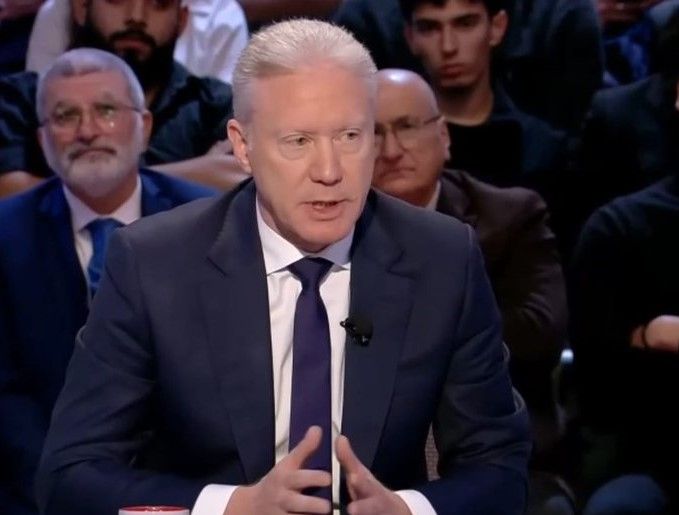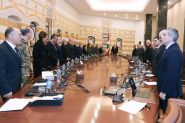
Foreign Minister Youssef Raggi said Thursday evening that he was open to negotiations with Israel while urging Lebanese expatriates to quickly register on the platform for the upcoming parliamentary elections.
Speaking on MTV’s Sar el-Waet program, Mr. Raggi said that if he were given a mandate by the government, he would be ready to enter official talks. He added that he had invited his Iranian counterpart to meet in a neutral country to explore possible common ground. Raggi also stressed the need to deploy an international force in southern Lebanon once the United Nations Interim Force in Lebanon (UNIFIL) withdraws, expressing hope that talks on the issue could start soon.
On the security front, Mr. Raggi underscored the central role of the Lebanese Army as the cornerstone of national defense. He noted that Washington does not provide aid or weapons to militias acting on behalf of another state, but only to the Lebanese Army.
Regarding domestic political relations, the minister said that the Lebanese Forces maintain good ties with President Joseph Aoun and that communication is ongoing. He reiterated that the LF’s stance on the weapons issue remains clear and unchanged, while acknowledging some U.S. frustration with the slow pace of Hezbollah’s disarmament process.
He said that contacts with the United States and Europe remain regular. He also referred to the postponement of Army Commander Rodolphe Haykal’s trip to Washington after several sensitive meetings were canceled, describing the move as a deeply political decision.
On the upcoming legislative elections, he called for extending registration deadlines to allow more citizens to take part, noting that 146,000 people had already signed up. He stressed that the elections must be held on time and that steps were being taken to enable expatriates to vote from their country of residence in the 15 constituencies.
On the issue of Syrian refugees, Mr. Raggi said, “We are actively working with international organizations to ensure the return of Syrian refugees to their country.” He added, “This issue falls under the responsibility of several ministries. The Foreign Ministry is not directly in charge of its implementation on the ground but focuses mainly on its political dimensions.”



Comments